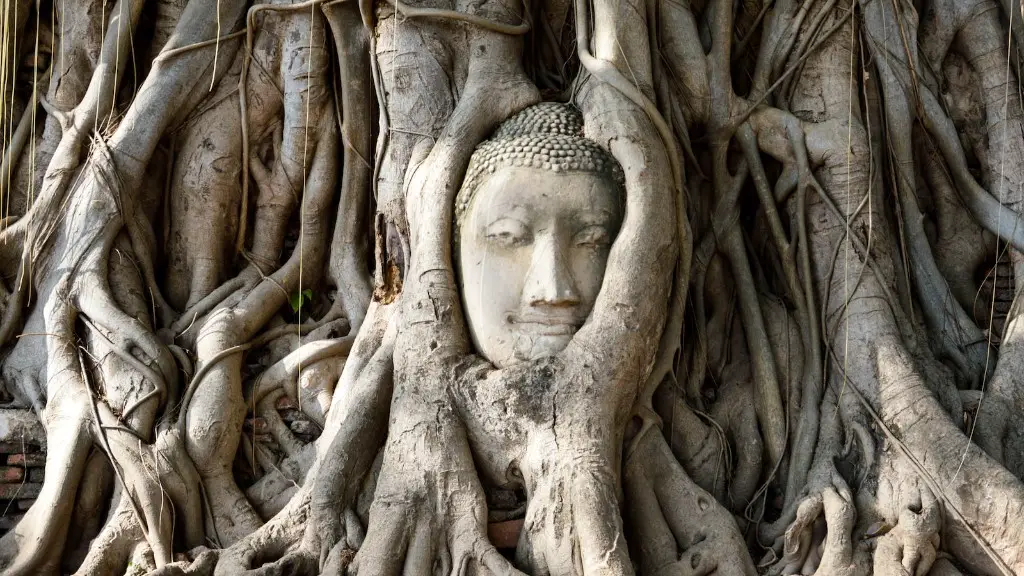Christianity is one of the world’s oldest religions, and also one of the most influential. Its millions of followers have shaped the world’s history and cultural development for centuries, making it one of the most powerful and pervasive forces in the world today. Over the past two millennia, Christianity has been the key driver behind some of the most important and influential events in world history, from the rise and fall of the Roman Empire to the fall of communism and the spread of democracy.
On an intellectual level, Christianity has had a profound impact on philosophy and science. Philosophy and theology were once seen as integrally intertwined disciplines and some of the world’s greatest thinkers such as Augustine, Aquinas, and Kant owe much of their thought to Christian sources. Christianity also provided a framework for understanding the natural world, inspiring the study of natural sciences and the discoveries of Copernicus, Galileo, and Newton.
More recently, Christianity has had a profound influence on social, economic and political change. Many of the modern movements for the alleviation of poverty, the advancement of human rights, and the promotion of peace have been inspired by the spirit of the Christian gospel and shaped by Christian activists. Christianity has also shaped popular culture, with music, literature, and art drawing inspiration from Christian sources.
At the same time, Christianity has also been seen as a source of tension in some parts of the world, as it is often associated with colonialism, imperialism, and the subjugation of indigenous cultures. Christian missionizing has been seen as a form of cultural imperialism, and many of the wars in the colonial era were fought in the name of the Christian faith. Traditionalist Christians have also been seen as oppressive, particularly with regards to women’s rights, LGBTQ rights, and science.
Today, Christianity remains one of the world’s largest and most influential religions and its impact on world history and culture is still significant. Christianity is an ongoing source of inspiration and motivation for its believers and continues to shape popular culture and social movements. Despite its checkered past, Christianity remains a powerful force for good in the world.
Modern Times
The world has changed drastically since the second century when Christianity spread from its birthplace in the Near East and Europe. In the modern era, Christianity is practiced by well over two billion people around the globe. In many countries, it is still the dominant religion with large majorities of people who identify as Christian. However, the spread of Christianity to the Middle East, Asia, Africa, and the Americas has resulted in diverse denominations and interpretations of the religion.
In recent decades, Christianity has become increasingly politicized, with divisions between progressive and conservative factions becoming increasingly stark. In the United States, for example, debates over abortion, same-sex marriage, and immigration often take on religious connotations and political divides between Christian groups often surface in debates over public policy. On a global scale, institutional Christianity has embraced the cause of the poor and oppressed, with the Catholic Church, in particular, taking a leading role in advocacy for the environment, human rights, and peacebuilding.
Christianity has also been influenced by the growth of other religions, such as Islam, which has recently become the fastest-growing religion in the world. This has spurred greater interreligious dialogue and understanding, opening the door for Muslim-Christian understanding and cooperation. Moreover, the growing awareness of non-Western perspectives has led to a critical reassessment of Christianity’s role in colonialism and the history of oppression.
Religious Freedom
Christianity’s influence has ebbed and flowed through the centuries. One of its most widely accepted ideas is the concept of religious freedom—the right to worship and practice one’s religion without fear or persecution. This ideal has become widely accepted in many countries, including the United States and many countries in Europe. This concept of religious freedom can be traced to the Protestant Reformation, in which the concept of individual conscience was championed by Martin Luther and other reformers. This idea of allowing individuals to decide their own faith spread to other countries and eventually became codified into laws in many countries.
This concept of religious liberty has provided an environment for people to practice their religion without fear of government retribution or discrimination, which has allowed Christianity to flourish in many countries. In addition, it has allowed many other religions to not only survive, but thrive. Religious freedom has also led to a newfound appreciation and respect for religious diversity, which can lead to understanding and harmony between people of different religious persuasions.
Impact on Global Society
The impact of Christianity on global society has been profound and enduring. Its teachings on justice and peace, its emphasis on compassion, and its promotion of education and charity have influenced countless people, governments, and societies through the millennia. Its view of human nature, in which every person is considered precious and worthy of respect and love, has contributed to a more humane and just world. It has inspired countless acts of service and charity, promoting a culture of caring and responsibility.
At the same time, Christianity is often seen as a source of division and discrimination, particularly between religious denominations and between countries. Its impact is complicated by the fact that it is practiced in so many ways and interpreted in so many contexts. Yet, its presence and influence endure in many aspects of global culture, from its role in the development of intellectual thought and philosophical inquiry to its role in inspiring art, music, and literature.
Technology and Christianity
In recent years, Christianity has been at the forefront of utilizing technology to promote its message. From the massive online presence of the Catholic Church to the proliferation of podcasts and YouTube videos by prominent Christian figures, technology has provided an unprecedented platform for the spread of the gospel. This new medium has allowed Christians to reach out to large audiences and connect with people in a way that was not possible in the past. As a result, Christianity has become a much more accessible and widespread force in the world.
At the same time, technology has also been used to combat negative stereotypes and perceptions of Christianity, with websites, blogs, and social media campaigns devoted to countering misinformation and combatting religious persecution. Technology has also helped to connect isolated Christian communities, providing a platform for dialogue and discussion beyond national boundaries.
Conclusion
Christianity has had a long and complex history, from its humble beginnings in the early centuries of the Common Era to its global presence today. Its influence has been profound and far-reaching, inspiring intellectuals, artists, and social activists in its wake. Its religious teachings have been at the forefront of debates over human rights, economic justice, and religious liberty, and its message has been made more accessible through the use of modern technology. Christianity continues to shape the world in ways both seen and unseen, and it is likely to remain a powerful force in the world for many years to come.

